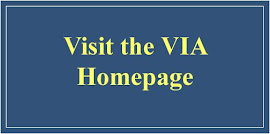Human behavior is at the center of global health challenges today. Whether trying to decrease smoking, increase active lifestyles, or advocating more balanced diets, changing a few key behaviors holds more potential to improve overall human health and wellness than just about any treatment-based solution. Consequently, it occupies a key place in public health - the core preoccupation fueling the growth of the entire sub-field of health education.
It's also key to what we do here at Vitality, where we examine the barriers that disable healthier behaviors and focus intensively on community and social solutions that transcend those barriers.
Behavior change campaigns - or in the case of youth, often negative behavior prevention campaigns - also happen to be at the center of my work with Peace Corps Moldova's Health Education Program. Everything our program does, from classes to community initiatives, is essentially part of a broader strategy tackling the slow and difficult process of helping people to take control of their own health for the better.
Needless to say, I've spent a lot of time thinking about behavior change these past couple years, and hope to have some thoughts on the broader process of behavior change in a future post. In the meantime, last month it was my pleasure to lead a 5 day In-Service Training on community-based behavior change campaigns for 33 Health Education Peace Corps Volunteers, Moldovan nurses, and community partners (social assistants and teachers).
Below is the presentation I gave on behavior change theory, primarily focused on the Trans-Theoretical/Stages of Change Model. Contact me if you'd like to use; on the off-chance somebody is interested, slides are also available in Romanian.
Zachariah is currently serving as a Health Education Specialist with the U.S. Peace Corps in Moldova. This entry is cross posted at his personal blog, “Embarkations.”
Friday, December 9, 2011
Subscribe to:
Posts (Atom)




